I’m a Stranger Here Myself, A First Week in Berlin
Three humans, two cats, and too much luggage, we hit the road for Berlin by air, from Newark.
No problem.
“I don’t know when we’ll meet again or what’ll happen in the future, but Desolation, Dissolution, I owe so much to Desolation,” Jack K wrote in Dharma Bums. “... thank you forever for guiding me me to the place where I learned it all…”
Out of nowhere, it became the book of the summer, a reference from the Gary Snyder poetry reading, reminding me of two hikers on the road, looking, living, wondering what will become of it all. “Who were all these strange ghosts rooted in the silly little adventure of earth with me? And who was I?”
When you walk the streets knowing no one, looking about, you wonder.
Those strange ghosts were with me, with us, walking, thinking about what happened here, in a place that has seen the worst, and lived to tell the tale.
The ghosts are everywhere.
The artist Kathy Kallwitz, her Museum down the block from where we are staying, who “evacuated from Berlin in 1943. Later that year, her house was bombed and many drawings, prints, and documents were lost.”
Dancer Anita Berber, a burlesque performer who perished after a bout with tuberculosis in 1928, who inspired Max Beckman, and company, her book on the book shelf.
Those who perished along the way.
You feel them here.
You see the people walking, wondering.
Been here many times, this time for a year, writing, researching, taking classes at Freie University, the teenager in high school on the other side of town.
Arriving, we drop off our bags in our third floor flat looking out at the S Bahn stop at Prenzlauer Allee, ”the 1.4-kilometre-long arterial road is named after the town of Prenzlau in the Uckermark.”
During the cold war, it was part of the East.
Today, it's a distinct neighborhood within a unified capital, the conflict not that far in the past.
You see it in the buildings, where bullet holes still remain from the days before.
Let the record show.
Walking through our little neighborhood, restaurants and parks, countless surprises greet us. Regarding climate change, a street sign suggests we can do it. A synagogue that fought back protecting its congregation 80 years ago reminds us; a sticker says make love great again, a poster points out, freedom of movement is everybody's right, even here a few meters from Alexanderplatz.
Berlin, Alexanderplatz lives.
Today, it's a shopping mall.
The city is alive with history, transgressing borders and nationalities.
I love the attitude of the German environmentalists. It's not too late, they insist.
Optimism translates to action.
For the next few days, we try to get oriented, get our residence permit and school enrollment settled.
Each day, we make our way out, where we encounter secret watering holes, kids running to the lakes, and opera singers belting out Puccini and Wagner arias in the streets. The city is buzzing.
Late in the darkness, I feel the ghosts. Make friends with them, Caroline says. That's why Bruno wanted to come down to the gritty city, she says, referring to the old movies. Make common cause between this life and that.
In between errands in Alexanderplatz, I jump off the S Bahn too early, and stumble into a garden, an 18th century cemetery that was a refuge during the cold war, 200 meters from Alexanderplatz. Today, it's a wilderness preserve and art gallery.
The proprietor Niels, is an amicable character, welcoming everyone.
Good night Berlin. Thanks for a lovely day. I think looking at the sun fading.
Thanks for this view from my patio.
In the morning, I flip through my biography of Anita Berber, wondering about it all, looking at the Naked Dance by Max Beckman, thinking about the desolation the city endured, eros crushed.
Today it's back.
The city is confident enough to endure a little high culture and low; Mac the Knife lives.
Dick picks are up in Alexanderplatz.
I snap a few shots
(Thinking of @brennan_cavanaugh … inside joke).
Still drafting the caption...
We ride to Prizessengarten, a garden, down Karl Marx Allee, trying to see as much as we can.
Bad things overlap with bad, lessons, you can’t be too early.
There are rule followers.
Already we’ve seen one mistake or misstep, and something else fascinating opening around the corner.
Some streets look like Paris.
Others like Detroit or Poland.
And then a street, Karl Marx Allee, and a reminder of what this city has endured, a tiny memorial, a bit of history the city is forever displaying, remembering, reminding, on and on, a building with a sign “Nonbinary.”
Another old movie theater, Babylon, showing Metropolis.
History for us all to see, to be a part of it.
That's the dance here, in between Fetish Clubs, along the U and S Bahn, trees and graffiti everywhere, opening and closing, zooming along, taking us there.
Each day, I spend more trying to figure out the chaos of this space, that something very dark took shape eighty years ago.
Thanatos seemed to eclipse eros, darkness over light.
Yet, there is something redemptive taking place now.
I think about about this biking through the city, with its Soviet past, Cold War remnants, among neoliberal monuments to tackiness T mobile stores at Alexanderplatz, the same Alexanderplatz that Fassbinder helped us see, reinventing Döblin’s Berlin Alexanderplatz:
“So, go on rising, sun, you don't frighten us. We don't care about your many miles, your diameter, your volume. Warm sun, just rise, bright light, arise. You are not big, you are not small, you are happiness.”
Eros has long battled Thanatos here.
Recall, Effi’s trials in the novel by Theodor Fontane from 1896.
The crackdowns on moral transgressions were many for a long time here.
“This is how they used to drown poor unfortunate women, from boats like this, for infidelity of course" ...wrote Fontaine in Effi Briest.
Today, the city seems to be correcting, compensating, adapting, inviting artists, opening its doors to immigrants. It was the most inviting place for us to come for our sabbatical year, with schools opening for the teenager and myself.
Each day, we go somewhere else, to a lake, a park, a museum, a neighborhood, trying to make sense of it all.
A few days in I drop by the old cemetery, just a few hundred meters away from Alexanderplatz. It is dubbed, Verwalterhaus, after the old cemetery keeper, Walter, who worked here for 55 years, most during the cold war, until neighbors complained the burials were contaminating the water and the practice stopped in 1995. He stayed on.
Outside, among old graves and wild grass, an elder sits unclothed.
No one says a word.
Naked people are not infrequent in the parks here.
People walk about the walled cemetery.
Neils, the the curator of Verwalterhaus, greets us, inviting guests into the gallery.
“Animals look at us,” is the show on the first floor.
Among bullet holes from a bygone era, the second floor features drawings
Niels drew of humans and birds during the pandemic, as part of his “Heads Up” show.
We talk about his home of Amsterdam and Berlin, in comparison with New York.
Strong cities can tolerate some vice and deviance, we agree.
That’s the problem with New York, it tried to tamp that down, sacrificing the high to combat the low. It's too much like 1984 now, says Caroline, sacrificing freedom for security.
Things are different here in Berlin, where art and literature, culture and clubs compel.
Berlin is poor but sexxxy, said the old mayor of Berlin.
Its also tried to acknowledge what happened here and apologize, something you don’t see much of in the USA, regarding slavery and slaughter of the indigenous peoples.
It took a long time to get an apology from Hollard for our colonial pasts, says Niels.
He has some suggestions for places to get to in the city, a favorite cemetery, the Dorotheen Statutcher Friedstrauf, where George William Frederick Hegel and Brecht were buried.
You should also go to the louise bourgeois show Gropius Bau.
We chat about our favorite trees.
Neil’s next show is about tree roots, cracking sidewalks as means of resistance.
His favorite tree is the “Dicke Marie,” Fat Marie tree in Tegel, by the airport. Even Goethe visited it.
We finish our talk and I set out toward Dorotheen Statutcher Friedstrauf.
Immediately, I stumble into the Hegel grave.
And then I find John Heartfield and Crista Wolfe. But I can't find Brecht's. So I circle a few times. No one seems to know it. Lots of people are here, looking about, paying their respects.
And finally a young woman with many tattoos and a shaved head walks up, saying she knows what I’m doing and it's wrong.
She practically runs me out of the cemetery.
Note to self, stay clear of the cults and ancestor worship in cemeteries.
There is a lot under the surface here.
I feel it riding through town, past the remains of the wall, through the desolation, to the Louise Bourgeois show at the Martin Gropius Bau. Across the museum, the Dananita Singh photographs surprise and intrigue, along with the Bourgeois explorations of texture and family and memory. Art is everywhere, much of it unpacking what came before.
Each day, we ride, to Frederiksberg, to Volkspark, to Kreutzberg; each neighborhood full of relics and stories, their own distinct histories, craters from the war, making room for something new, immigrants and refugees, making up this city.
At night, I try to read and make sense of all I’ve seen.
People have been here a long time, since pre history, says Richie in Faust’s Metropolis.
Siegfried Kraucauer saw an “ugly beauty” in “this wondrous spectacle,” ever reveling in the countless contradictions between its “toughness” and “splendor” witnessed here.
Goethe was famously hostile to the place.
“[T]he metropolis” was the devil's world, he wrote in Faust, his last temptation, a city full of “activity and stench…”
Founded without a creation myth, a trading post started becoming a city in the late 12th century, with new arrivals every day.
The Black Death of 1348 took some 10% of the population, consumed by smallpox, influenza and typhus. Pograms, superstitions and punishment followed.
Today, 1140 Monkey Pox cases are inspiring worries here and calls for quicker vaccinations.
Forward, backward, on the city moves through its cataclysms of history, wave after wave of people arriving, forming communities, thinking, migrations shaping culture; displacements following, primitive accumulation as Marx saw it in Capital.
And the city lurched forward, through unification, Otto von Bismarck, nationalism, World Wars, treaties, cabarets, resentment, scapegoats, a Hollocaust, bombs, fires, the city flattened, occupied, divided, a wall rising, falling, history closing, opening, ever shifting.
And today, “like Faust, Berlin has been given another chance,” says Alexandra Richie in Faust’s Metropolis.
This is where we spend the year.
It's only been a week and there are already too many pictures to share.
More ideas than I can imagine.




























.JPG)

.JPG)
.JPG)
.JPG)
.JPG)
.JPG)
.JPG)

.JPG)
.JPG)

.JPG)
.JPG)
.JPG)


.JPG)
.JPG)
.JPG)
.JPG)
.JPG)
.JPG)
.JPG)
.JPG)




.JPG)










.JPG)
.JPG)




.JPG)
.JPG)


.JPG)


.JPG)

.JPG)

.JPG)
.JPG)
.JPG)
.JPG)






.JPG)
.JPG)






.JPG)
.JPG)


.JPG)


.JPG)














.JPG)


















































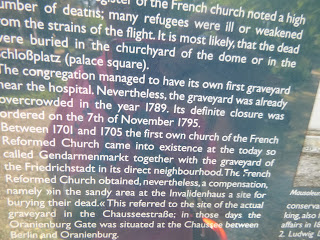





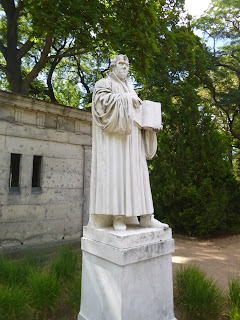



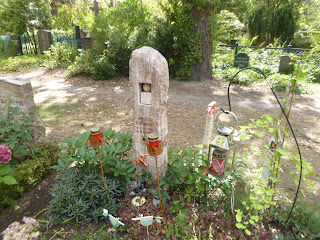











































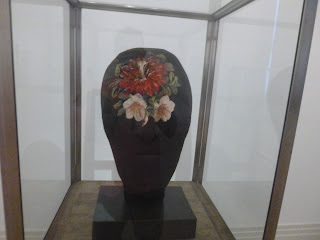





















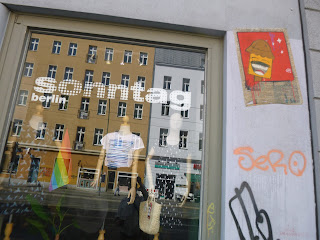





























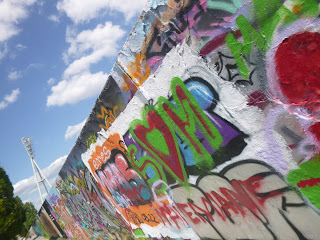






















































































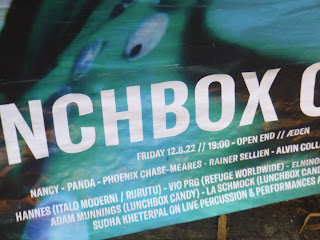



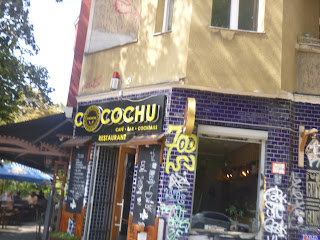

















No comments:
Post a Comment